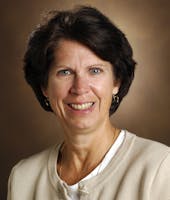
Bio
Dr. Barbara Stengel is Professor of the Practice of Education at Vanderbilt University’s Peabody College and a philosopher of education by preparation and temperament. Stengel teaches courses that examine the social, philosophical, history, political and economic aspects of schooling specifically and educational efforts generally. In her role as Director of Secondary Education, she brings a philosophical temper to practical questions about teacher education programs and policies, raising prior questions, uncovering assumptions (including her own!), clarifying language, and generally deconstructing the stories we tell ourselves about what we are doing and why.
Over the past decade, Dr. Stengel’s philosophical work has focused on the moral and relational dimensions of teaching, learning and leadership (See, for example, Moral Matters: Five Ways to Develop the Moral Life of Schools (with Alan Tom, Teachers College Press, 2006). She has explored the language of responsibility as a useful foundational language for teaching and teacher education in that it integrates the moral (what’s worth doing) and the academic (what’s worth knowing) in pedagogical action. Currently, she is analyzing emotion as a feature of educational interaction. She is especially interested in the role of fear in the dynamic of learning (Does fear motivate learning? Or impede? Or is it more complicated than that?), but also in the ways fear has infected U.S. systems of schooling since 9/11 as well as since the introduction of the Bush/Kennedy opus, No Child Left Behind. Two essays that express Stengel’s thinking on these issues are available in “The Complex Case of Fear and Safe Space” in Studies in Philosophy and Education and “Exploring Fear: Rousseau, Dewey and Freire on Fear and Learning” in Educational Theory.
As the Director of Peabody’s Secondary Education Program, Stengel and her colleagues are working with a number of Nashville middle schools and high schools to create sites where the work of teaching, the professional development of teachers and the preparation of new members of the profession are seamless in what she calls “leveraged learning schools.” Based on staffing models that challenge the one-teacher, one-classroom mold, the goal is to imagine and create institutions where everybody involved is learning and growing all the time.










